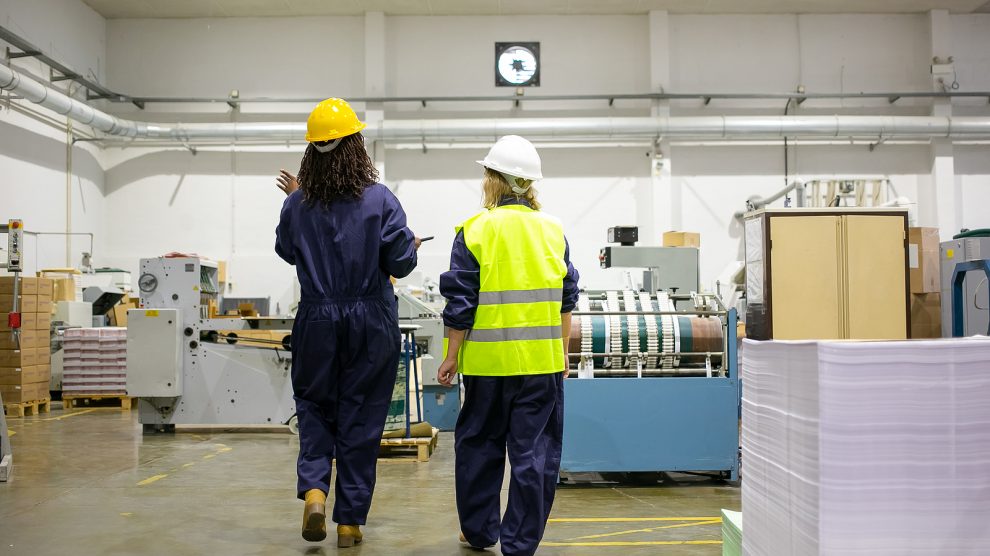Latvia is the only country in emerging Europe with a perfect score in the World Bank’s latest Women, Business and the Law 2021 report.
Countries are inching toward greater gender equality, but women around the world continue to face laws and regulations that restrict their economic opportunity, with the Covid-19 pandemic creating new challenges to their health, safety, and economic security, a new World Bank report claims.
Reforms to remove obstacles to women’s economic inclusion have been slow in many regions and uneven within them, according to the report, Women, Business and the Law 2021.
On average, women globally have just three-quarters of the legal rights afforded to men. Women were already at a disadvantage before the pandemic, and government initiatives to buffer some of its effects, while innovative, have been limited in many countries, the report says.
- Not before time, EU launches ageing population policy debate
- To reduce urban-rural divide, Central Asia must embrace freedom of movement
- Health and education first: The key to unleashing emerging Europe’s post-pandemic potential
“Women need to be fully included in economies in order to achieve better development outcomes,” said David Malpass, World Bank Group president.
“Despite progress in many countries, there have been troubling reversals in a few, including restricting women’s travel without the permission of a male guardian. This pandemic has exacerbated existing inequalities that disadvantage girls and women, including barriers to attend school and maintain jobs. Women are also facing a rise in domestic violence and health and safety challenges. Women should have the same access to finance and the same rights to inheritance as men and must be at the center of our efforts toward an inclusive and resilient recovery from the Covid-19 pandemic.”
Women, Business and the Law 2021 measures the laws and regulations across eight areas that affect women’s economic opportunities in 190 countries, covering the period from September 2019-October 2020.
From the basics of movement in the community to the challenges of working, parenting, and retiring, the data offers objective and measurable benchmarks for global progress toward gender equality. Following the outbreak of the pandemic, this report also looks at government responses to the Covid-19 crisis and how the pandemic has impacted women at work and at home, focusing on childcare, access to justice, and health and safety.
Latvia leads emerging Europe
In emerging Europe only one country, Latvia, offers full gender equality, which places it in a select group of just 10 nations that score the maximum of 100 in the Women, Business and the Law index.
Estonia is the next-best placed, with a score of 97.5, followed by Hungary and Slovenia with scores of 96.9.
Slovenia is also one of just two countries in the emerging Europe which improved its score over the past 12 months, the other being Montenegro (88.1).
In Central Asia, Uzbekistan also enacted positive reform, by making access to credit easier for women by prohibiting gender-based discrimination when providing financial services, but its overall score of 70.6 remains modest.
Indeed, of all countries in emerging Europe and Central Asia, only Kazakhstan scores lower (69.4), although Turkmenistan was not included in the World Bank’s research.
Covid-19 impact
Overall, the report finds that many governments have put in place measures to address some of the impacts of the pandemic on working women.
For example, less than a quarter of all economies surveyed in the report legally guaranteed employed parents any time off for childcare before the pandemic. Since then, in light of school closures, nearly an additional 40 economies around the world have introduced leave or benefit policies to help parents with childcare. Even so, these measures are likely insufficient to address the challenges many working mothers already face, or the childcare crisis.
The pandemic has also contributed to a rise in both the severity and frequency of gender-based violence.
Preliminary research shows that since early 2020, governments introduced about 120 new measures including hotlines, psychological assistance, and shelters to protect women from violence. Some governments also took steps to provide access to justice in several ways, including declaring family cases urgent during lockdown and allowing remote court proceedings for family matters.
However, governments still have room to enact measures and policies aimed at addressing the root causes of this violence.
“While it is encouraging that many countries have proactively taken steps to help women navigate the pandemic, it’s clear that more work is needed, especially in improving parental leave and equalizing pay,” says Mari Pangestu, managing director of development policy and partnerships, at the World Bank.
“Countries need to create a legal environment that enhances women’s economic inclusion, so that they can make the best choices for themselves and their families.”
Unlike many news and information platforms, Emerging Europe is free to read, and always will be. There is no paywall here. We are independent, not affiliated with nor representing any political party or business organisation. We want the very best for emerging Europe, nothing more, nothing less. Your support will help us continue to spread the word about this amazing region.
You can contribute here. Thank you.








[…] Latvia leads CEE in World Bank gender equality index was originally published on Emerging Europe. […]
[…] Latvia leads CEE in World Bank gender equality index […]
[…] Latvia leads CEE in World Bank gender equality index […]
[…] Latvia leads CEE in World Bank gender equality index […]